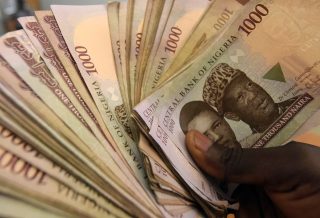According to the Sustainable and Inclusive Digital Financial Services Initiative of the Lagos Business School, engaging religious institutions and informal social groups are essential for financial inclusion in Nigeria. This was revealed a seminar organized by the LBS last week to launch its new report on financial inclusion in Nigeria.
The head of the Sustainable and Inclusive Digital Financial Services (SIDFS) initiative, Dr. Olayinka David-West mentioned at the seminar that one of the problems of Financial Service Providers in Nigeria is the inability to recognize the people who really need their services. “One of the many challenges of Financial Service Providers (FSPs) is limited knowledge of customers, and as a result, they often overlook high potential customers or misidentify their needs, and invest in products and channels that sometimes miss the mark,” she said.
The World Bank’s Global Findex Database report released earlier this year indicated that more than 60 million Nigerians are unbanked, i.e. they do not use formal or semi-formal finance institutions to save or borrow money. The major reasons for why they are unbanked range from having too little money to ‘bank’ to distrust in the banking system, and distance to it.
However, the SIDFS Initiative of the Lagos Business School carried out a study, the Customer Segmentation Study, on how to identify financially excluded/unbanked Nigerians. According to the study, which was carried out with the help of Dalberg Research Group and the Bill and Melinda Gates Foundation, there are about 135 million financially excluded Nigerians, or Bottom of the Pyramid (BoP) population, which is more than twice the number from the World Bank’s report. These financially excluded Nigerians are roughly divided into six customer segments: the vulnerable believers who make up 12 percent, the resilient savers who make up 21 percent, the dependent individualists who are 22 percent, the Digital Youth who are 19 percent, the 14 percent confident optimists, and the skeptical cultivators who make up 12 percent of the population.
The Vulnerable believers are “people who are mostly lower-middle-class to poor, religious, predominantly rural, with limited education, use financial services infrequently and struggle to pay bills.” The solution to reaching these people and banking them is for Financial Service Providers and government to reach them through their religious institutions, and organize agricultural programs that will give them some amount of control over their finances.
Skeptical cultivators are Nigerians who “who draw on more people than average for support during emergencies, yet face difficulty raising emergency funds and distrust people in their communities”. The way through which Financial Service Providers can reach them is to “encourage Mobile Network Operators (MNOs) to incentivize and facilitate greater phone ownership and usage by the segment, to improve access to services, provide daily liquidity, support financial planning and disciplined savings, build financial confidence and autonomy, and foster financial connections and access to emergency support.” Read more here.
The implication of the study shows that finding a ‘Nigerian’ solution to a ‘Nigerian’ problem is the best hope for financial inclusion in Nigeria. It also shows where the marketing strategies of Financial Service Providers should be targeted. This study will go a long way in helping FSPs identify financially excluded Nigerians, and help them make better choices with their monies, and consequently, help reduce poverty in Nigeria, since what separates the rich from the poor, basically, are the decisions they make with their money.








